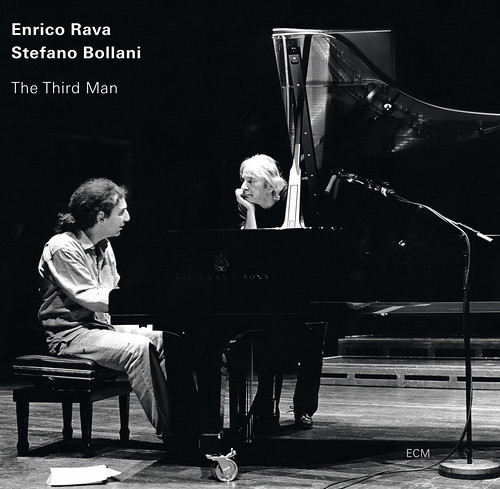 Full of fire, restless energy, ominous darkness, and delightfully spooky pizzicato, this avant-garde release on John Zorn's Radical Jewish series mixes "Jewish traditions with classical, gypsy and downtown improvisation" (Tzadik). Sounds fairly esoteric, but the atmosphere of the record is usually anything but - this is fun, accessible music packed with real emotions and astonishing group coherence through a lot of highly complex pieces. For the inclined the word "math" might come to mind while listening to this, but the constantly changing, bouncing rhythms really feel closer to ethnic traditions from Eastern Europe than the contemporary math rock scene, and never feel like the point of the compositions. Led by Malkovksy's button accordian and held together by the Israel Contemporary String Quartet (plus an extra contrabassist), this is 50 minutes of delight.
Full of fire, restless energy, ominous darkness, and delightfully spooky pizzicato, this avant-garde release on John Zorn's Radical Jewish series mixes "Jewish traditions with classical, gypsy and downtown improvisation" (Tzadik). Sounds fairly esoteric, but the atmosphere of the record is usually anything but - this is fun, accessible music packed with real emotions and astonishing group coherence through a lot of highly complex pieces. For the inclined the word "math" might come to mind while listening to this, but the constantly changing, bouncing rhythms really feel closer to ethnic traditions from Eastern Europe than the contemporary math rock scene, and never feel like the point of the compositions. Led by Malkovksy's button accordian and held together by the Israel Contemporary String Quartet (plus an extra contrabassist), this is 50 minutes of delight.Download
Tzadik Records page
Own it for $7

